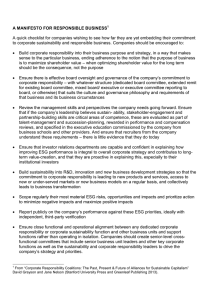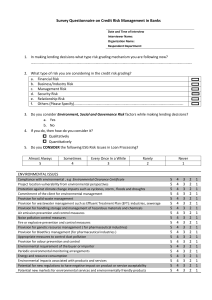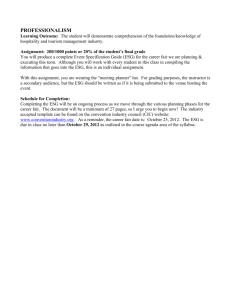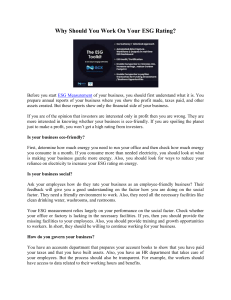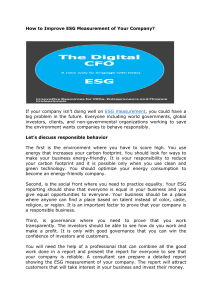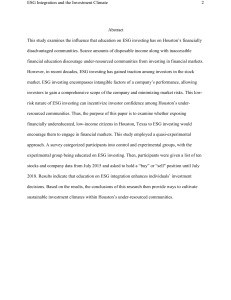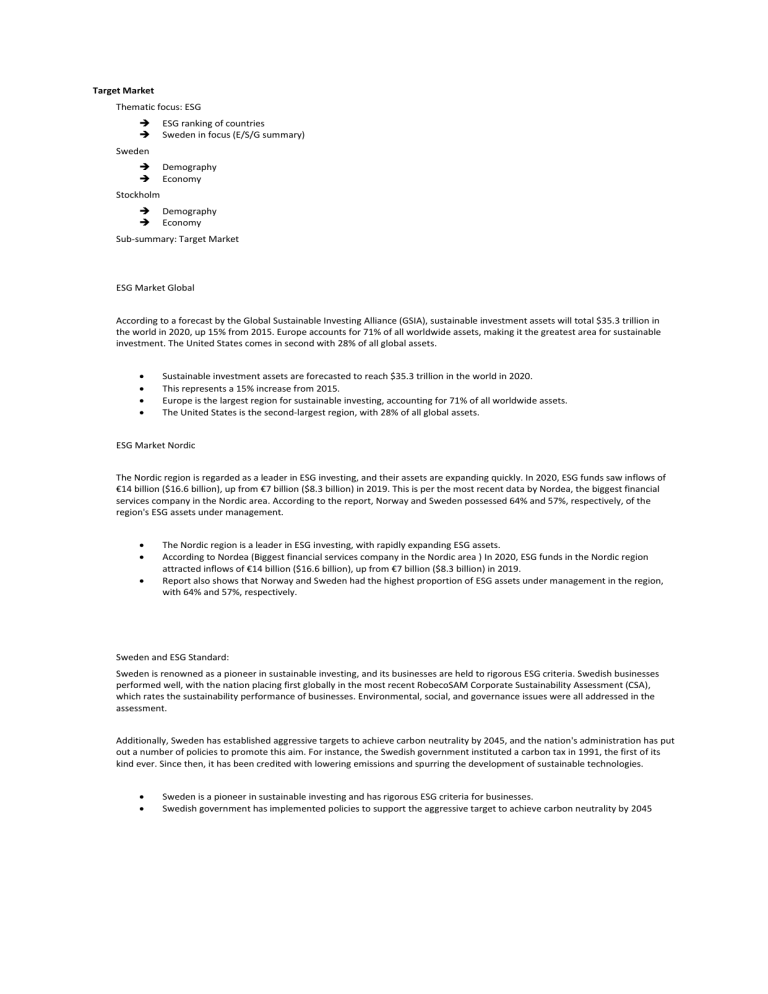
Target Market Thematic focus: ESG ESG ranking of countries Sweden in focus (E/S/G summary) Sweden Demography Economy Stockholm Demography Economy Sub-summary: Target Market ESG Market Global According to a forecast by the Global Sustainable Investing Alliance (GSIA), sustainable investment assets will total $35.3 trillion in the world in 2020, up 15% from 2015. Europe accounts for 71% of all worldwide assets, making it the greatest area for sustainable investment. The United States comes in second with 28% of all global assets. Sustainable investment assets are forecasted to reach $35.3 trillion in the world in 2020. This represents a 15% increase from 2015. Europe is the largest region for sustainable investing, accounting for 71% of all worldwide assets. The United States is the second-largest region, with 28% of all global assets. ESG Market Nordic The Nordic region is regarded as a leader in ESG investing, and their assets are expanding quickly. In 2020, ESG funds saw inflows of €14 billion ($16.6 billion), up from €7 billion ($8.3 billion) in 2019. This is per the most recent data by Nordea, the biggest financial services company in the Nordic area. According to the report, Norway and Sweden possessed 64% and 57%, respectively, of the region's ESG assets under management. The Nordic region is a leader in ESG investing, with rapidly expanding ESG assets. According to Nordea (Biggest financial services company in the Nordic area ) In 2020, ESG funds in the Nordic region attracted inflows of €14 billion ($16.6 billion), up from €7 billion ($8.3 billion) in 2019. Report also shows that Norway and Sweden had the highest proportion of ESG assets under management in the region, with 64% and 57%, respectively. Sweden and ESG Standard: Sweden is renowned as a pioneer in sustainable investing, and its businesses are held to rigorous ESG criteria. Swedish businesses performed well, with the nation placing first globally in the most recent RobecoSAM Corporate Sustainability Assessment (CSA), which rates the sustainability performance of businesses. Environmental, social, and governance issues were all addressed in the assessment. Additionally, Sweden has established aggressive targets to achieve carbon neutrality by 2045, and the nation's administration has put out a number of policies to promote this aim. For instance, the Swedish government instituted a carbon tax in 1991, the first of its kind ever. Since then, it has been credited with lowering emissions and spurring the development of sustainable technologies. Sweden is a pioneer in sustainable investing and has rigorous ESG criteria for businesses. Swedish government has implemented policies to support the aggressive target to achieve carbon neutrality by 2045 Why Sweden is a Great Market for New Investments: Sweden is a desirable market for new investments because of its ESG framework and sustainability promises. The investing landscape of the nation reflects its commitment to sustainability, with ESG investments on the increase. According to a study by the Swedish Investment Fund Association, net inflows to ESG funds in Sweden increased from SEK 7.3 billion ($861 million) in 2019 to SEK 16.5 billion ($1.9 billion) in 2020. Investors are drawn to Sweden's innovation and technology industries, with Stockholm being mentioned as one of the continent's top IT hubs. With businesses like Spotify, Klarna, and iZettle developing as key leaders in their respective sectors, the city boasts a thriving start-up culture. Investing in Sweden: A Sustainable and Innovative Market Sweden's ESG framework and sustainability promises make it an attractive market for new investments The investing landscape of Sweden reflects its commitment to sustainability, with ESG investments on the rise According to a study by the Swedish Investment Fund Association, net inflows to ESG funds increased from SEK 7.3 billion ($861 million) in 2019 to SEK 16.5 billion ($1.9 billion) in 2020 Stockholm is one of the top IT hubs in Europe, drawing investors to its thriving start-up culture Key businesses like Spotify, Klarna, and iZettle are developing as leaders in their respective sectors in Stockholm ESG Application in Stockholm: Stockholm has adopted a proactive stance towards sustainability and has put in place several programmes to cut emissions and encourage sustainable behaviours. For instance, the city's use of a congestion levy has been effective in lowering traffic and improving air quality. The Swedish Transport Agency said that between 2006 and 2019, the congestion fee in Stockholm decreased traffic by 18%. Additionally, Stockholm has set a lofty objective to eliminate all fossil fuels by 2040, with a target of cutting emissions by 40% by that year. A robust network of public transportation has also been established in the city and is run by renewable energy. All of the city's buses and trains, according to Stockholm's public transportation provider, SL, are propelled by renewable energy, and the city intends to have a 100% renewable public transportation system by 2025. Stockholm's Proactive Approach to Sustainability Stockholm has implemented several programmes to cut emissions and encourage sustainable behaviours The city's congestion levy has been effective in reducing traffic and improving air quality, with a decrease of 18% between 2006 and 2019 Stockholm has set an ambitious goal to eliminate all fossil fuels by 2040 and cut emissions by 40% The city's public transportation network is run by renewable energy, with all buses and trains propelled by renewable energy according to Stockholm's public transportation provider, SL The city aims to achieve a 100% renewable public transportation system by 2025 Conclusion: The ESG market is growing rapidly, with investors prioritizing companies that demonstrate high ESG standards. The Nordic countries, particularly Sweden, are leaders in sustainable investing, with a strong ESG framework and ambitious sustainability goals. Stockholm is a leading city in sustainable development, with the public
